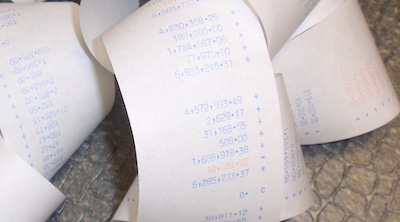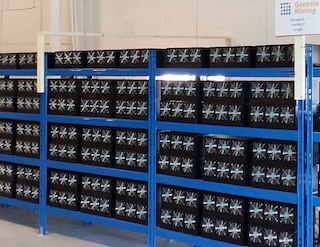Issue 80: Cryptocurrency's Wasteful Energy Consumption and an Ode to Interlibrary Loan
Welcome to issue 80 of Thursday Threads. I'm so happy many of you chose to stick around and greetings to all of the new subscribers. To those that received my email last Thursday giving you a heads-up that a new issue would be coming to your inbox but then didn't receive it: check your spam folder. Over the course of the week, I've learned a great deal more about the spam-prevention mechanisms that are keeping our inboxes as clean as they are. I highly recommend the interactive 'Learn and Test DMARC' site sponsored by URIPorts. It was useful to see several standards come together to ensure email senders are who they say they are. (If you find this issue in your spam folder, please reply so I can track down more of the causes.)
Two threads this week:
On a professional note, my employer is looking for a FOLIO Services Analyst to join our growing effort bringing the FOLIO open source platform to libraries around the world. If getting in on the ground floor of a revolution in library technology sounds appealing, check out the job description at the link above.
Feel free to send this newsletter to others you think might be interested in the topics. If you are not already subscribed to DLTJ's Thursday Threads, visit the sign-up page. If you would like a more raw and immediate version of these types of stories, follow me on Mastodon where I post the bookmarks I save. Comments and tips, as always, are welcome.
Cryptocurrency's Energy Consumption
Kosovo's government on Tuesday introduced a ban on cryptocurrency mining in an attempt to curb electricity consumption as the country faces the worst energy crisis in a decade due to production outages.
An army of cryptocurrency miners heading to the state for its cheap power and laissez-faire regulation is forecast to send demand soaring by as much as 5,000 megawatts over the next two years. The crypto migration to Texas has been building for months, but the sheer volume of power those miners will need — two times more than the capital city of almost 1 million people consumed in all of 2020 — is only now becoming clear.


That's just the start of the cryptocurrency problem. We'll return to this thread often.
An Ode to Interlibrary Loan
My book arrived a few weeks later, a gift from a mysterious library in the Midwest. Here was knowledge on loan from afar. I loved books, but my local libraries had finite stacks—but now I could get books from anywhere. I have used this service an obnoxious amount of times since. Books about UFOs in France, folklore, saints, basketball, poetry, and propulsion system dissertations—anything.
You know an article is good when it makes the rounds again years later. This 2019 article recently came around again in my Twitter feeds, this time originating with Brewster Kahle. It is a wonderful article about the wonder of discovery and the ethos of libraries to share resources with each other for the benefit of our patrons. Starting in the fifth paragraph, the author takes us on a whirlwind tour of interlibrary loan through the ages.
Interlibrary Loan is a thing of wonder. Modern ILL is chock full of standards, overlapping pools of cooperating libraries, and automation that with each iteration attempts to smooth the process for patrons and librarians. A worthy article if you are in need of an example of why libraries do what they do.